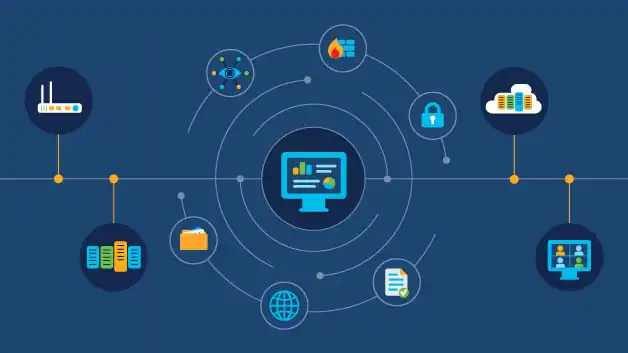Networking
Effective networking is crucial for ensuring seamless communication, enhancing productivity, and supporting the overall operations of an organization. ICS deploy best practices and latest networking technologies and trends, build on robust and efficient networks that meet their customers needs and goals.

Key Considerations for Networking
1Network Design
Effective network design considers factors such as scalability, reliability, security, and performance. It involves planning the network layout, choosing appropriate topologies, and selecting suitable hardware and protocols.
2Bandwidth and Latency
Bandwidth refers to the data transfer capacity of a network, while latency refers to the time it takes for data to travel from source to destination. Both are critical for network performance.
3Log Analysis
Collecting and analyzing logs from various systems, applications, and devices to identify anomalies or indicators of compromise. Security information and event management (SIEM) systems play a crucial role in aggregating and analyzing log data.
4Threat Intelligence
Leveraging threat intelligence feeds to stay informed about the latest cyber threats, vulnerabilities, and attack techniques. This information helps security teams anticipate and defend against emerging threats.
5Redundancy and Failover
Implementing redundancy and failover mechanisms ensures network reliability and availability in case of hardware failures or other disruptions.
6Quality of Service (QoS}
QoS mechanisms prioritize certain types of traffic (e.g., voice or video) to ensure reliable and consistent performance.
7Network Monitoring and Management
Tools and processes for monitoring network performance, detecting issues, and managing network resources are essential for maintaining a healthy network.
